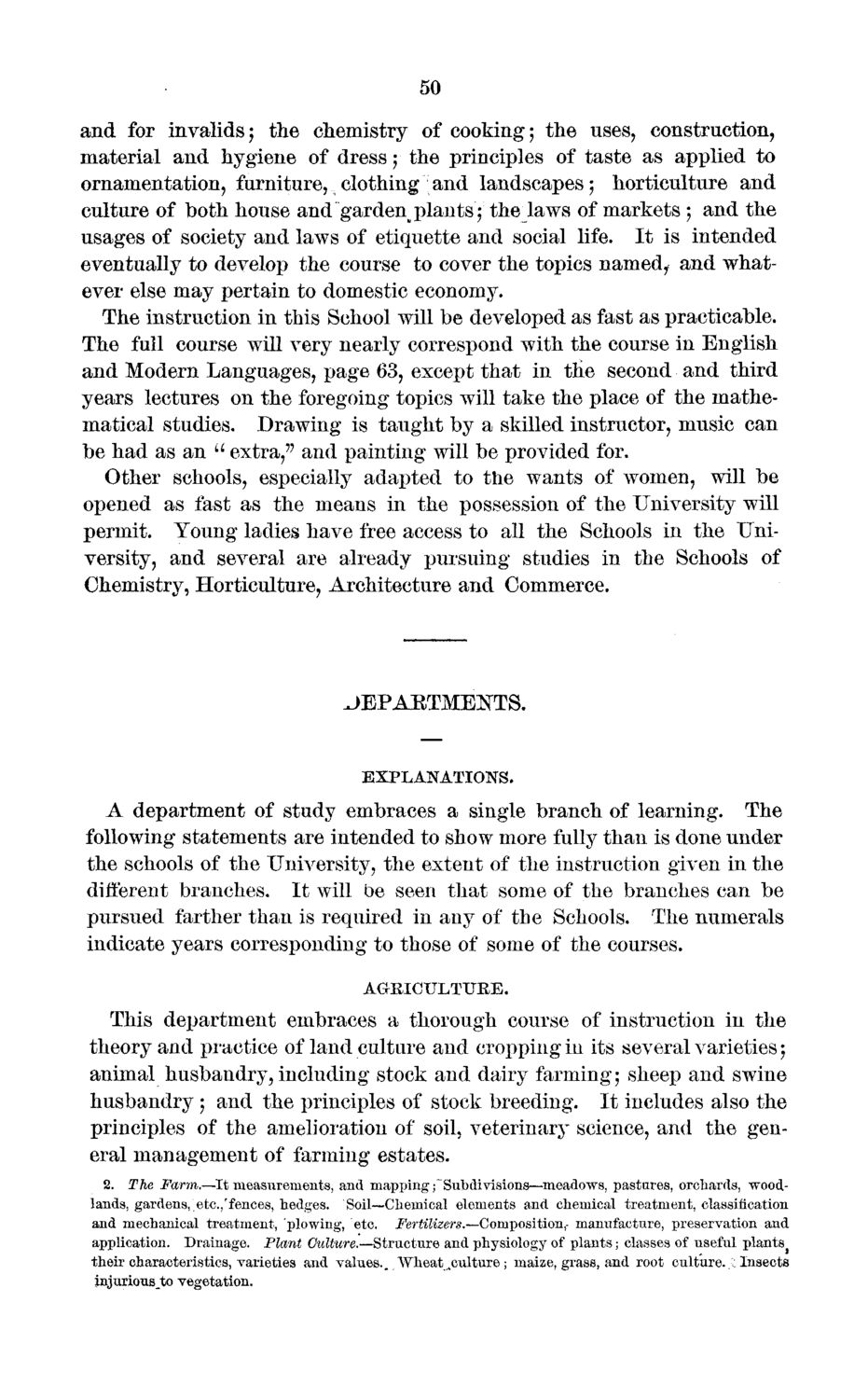| |
| |
Caption: Board of Trustees Minutes - 1873
This is a reduced-resolution page image for fast online browsing.

EXTRACTED TEXT FROM PAGE:
50 and for invalids; the chemistry of cooking; the uses, construction, material and hygiene of dress y the principles of taste as applied to ornamentation, furniture, clothing and landscapes; horticulture and culture of both house and garden^plants; the laws of markets ; and the usages of society and laws of etiquette and social life. I t is intended eventually to develop the course to cover the topics named, and whatever else may pertain to domestic economy. The instruction in this School will be developed as fast as practicable. The full course will very nearly correspond with the course in English and Modern Languages, page 63, except that in the second and third years lectures on the foregoing topics will take the place of the mathematical studies. Drawing is taught by a skilled instructor, music can be had as an " extra," and painting will be provided for. Other schools, especially adapted to the wants of women, will be opened as fast as the means in the possession of the University will permit. Young ladies have free access to all the Schools in the University, and several are already pursuing studies in the Schools of Chemistry, Horticulture, Architecture and Commerce. DEPARTMENTS. EXPLANATIONS. A department of study embraces a single branch of learning. The following statements are intended to show more fully than is done under the schools of the University, the extent of the instruction given in the different branches. It will be seen that some of the branches can be pursued farther than is required in any of the Schools. The numerals indicate years corresponding to those of some of the courses. AGRICULTURE. This department embraces a thorough course of instruction in the theory and practice of land culture and cropping in its several varieties; animal husbandry, including stock and dairy farming; sheep and swine husbandry ; and the principles of stock breeding. It includes also the principles of the amelioration of soil, veterinary science, and the general management of farming estates. 2. The Farm.—It measurements, and mapping ;~Subdivisions—meadows, pastures, orchards, woodlands, gardens, etc.,'fences, hedges. Soil—Chemical elements and chemical treatment, classification and mechanical treatment, plowing, "etc. Fertilizers.—Composition,- manufacture, preservation and application. Drainage. Plant Culture.—Structure and physiology of plants; classes of useful plants their characteristics, varieties and values.. Wheat ^culture; maize, grass, and root culture. ;Insects jnjurious.to vegetation.
| |